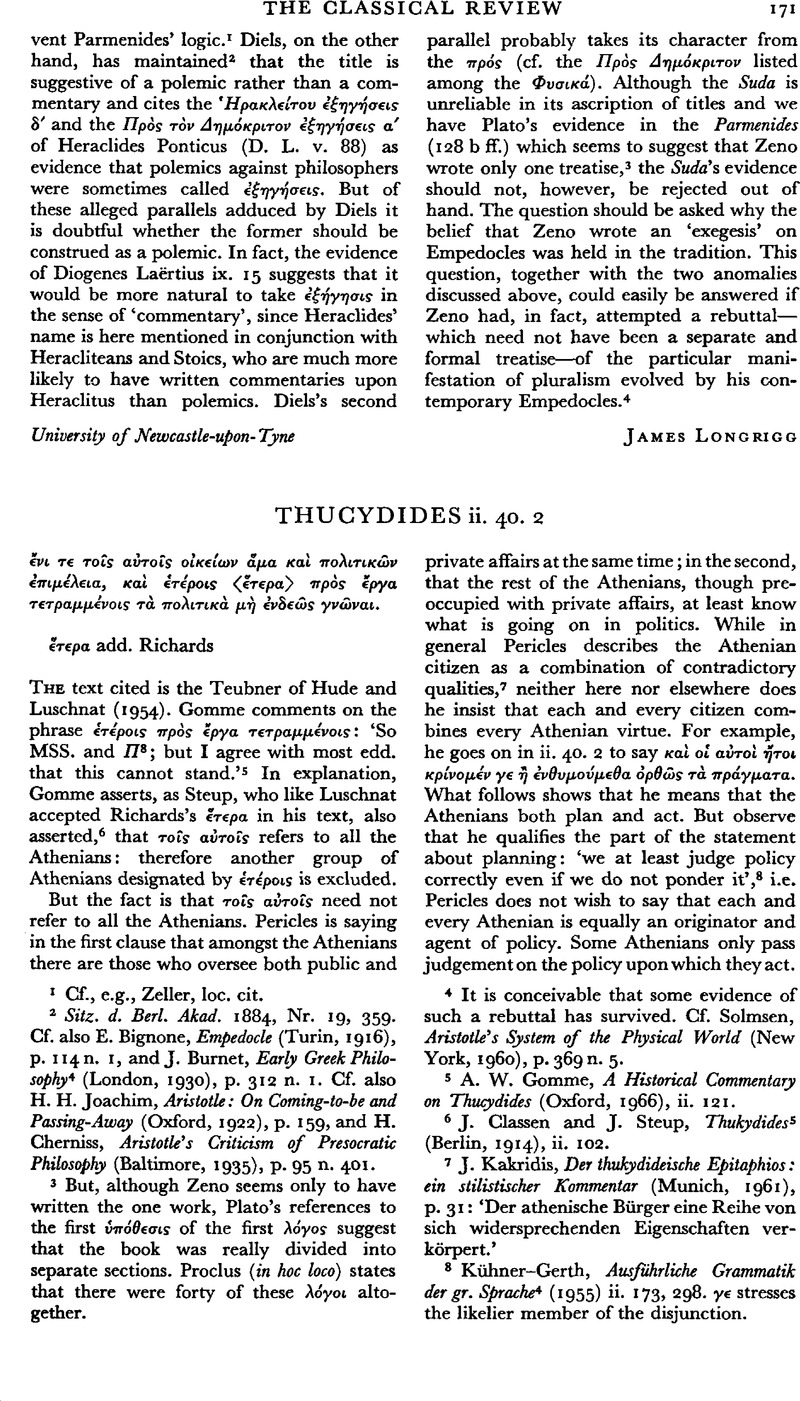Article contents
Thucydides ii. 40. 2
Published online by Cambridge University Press: 27 February 2009
Abstract

- Type
- Review Article
- Information
- Copyright
- Copyright © The Classical Association 1972
References
1 Cf., e.g., Zeller, loc. cit.
2 Sitz. d. Berl. Akad. 1884, Nr. 19, 359. Cf. also Bignone, E., Empedocle (Turin, 1916), p. 114 n. 1Google Scholar, and Burnet, J., Early Greek Philosophy 4 (London, 1930), p. 312 n. 1Google Scholar. Cf. also Joachim, H. H., Aristotle: On Coming-to-be and Passing-Away (Oxford, 1922), p. 159Google Scholar, and Cherniss, H., Aristotle's Criticism of Presocratic Philosophy (Baltimore, 1935), p. 95 n. 401.Google Scholar
3 But, although Zeno seems only to have written the one work, Plato's references to the first ὑπόθεσις of the first λόγος suggest that the book was really divided into separate sections. Proclus (in hoc loco) states that there were forty of these λόγοι altogether.
4 It is conceivable that some evidence of such a rebuttal has survived. Cf. Solmsen, , Aristotle's System of the Physical World (New York, 1960), p. 369 n. 5.Google Scholar
5 Gomme, A. W., A Historical Commentary on Thucydides (Oxford, 1966), ii. 121.Google Scholar
6 Classen, J. and Steup, J., Thukydides5 (Berlin, 1914), ii. 102.Google Scholar
7 Kakridis, J., Der thukydideische Epitaphios: ein stilistischer Kommentar (Munich, 1961), p. 31: ‘Der athenische Bürger eine Reihe von sich widersprechenden Eigenschaften ver-körpert.’Google Scholar
8 Kühner–Gerth, Ausführliche Grammatik der gr. Sprache 4 (1955) ii. 173, 298. γε. stresses the likelier member of the disjunction.
- 1
- Cited by


